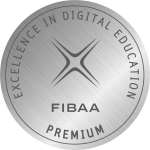A Kienbaum survey of more than 1,000 selected talents revealed a large discrepancy between what is important to talent and what organizations offer. Around half of the talented people feel too restricted by their employer’s “one-size-fits-all” development portfolio.
The survey identified three key drivers for talent engagement:
Talents want to be empowered and not patronized: 95% of these talents want to be able to select their own content and formats for their professional development themselved. 88% of the talents stated that they want to independently look for projects within the company for their development
They want business impact and not occupational therapy: 91% of them would like to be able to use their skills in terms of corporate goals and not in simulations.
You want to grow together with your colleagues: 85% would like all employees to receive the same intensive professional development.
While in earlier approaches only so-called high potentials were defined as talents, the view that talent management should be broad, related to all employees, and strategically geared to the implementation of corporate goals has now largely prevailed. Kienbaum confirms this approach in his study.
Talents are viewed in a systematically developed sense as the gifts that every hired employee has and which – to varying degrees – represent entrepreneurial potential. With a correspondingly positive view of humanity, it can be said that everyone has talent.
A future-oriented talent management proves to be a deeply sounding value and competence management. The aim is to identify the potential of all employees and managers, to use and develop them in a targeted manner and to retain them over the long term.
Only those companies that proactively enable the development of the competence potential of all talents will be successful in the future. But if the goal is to develop independently acting and decisive employees, then it is naïve to believe that this would be possible in a seminar, no matter how well done it is. It is actually quite simple. Talent management requires that the requirements in practice, namely to act in a self-organized and responsible manner, are also reflected in the learning culture of the development measures for the talents. Therefore, learning arrangements with value and competence goals – soft skills – are mandatory for talent management.
This means that talent management is largely identical to value and competence management.
It seems almost grotesque when, as one can observe again and again, talent management systems lead to qualification concepts with externally organized seminars without giving space to the targeted development of values and skills. If talents are understood as a potential for the development of values and skills, self-organized learning is the prerequisite for this. In our experience, social blended learning arrangements are suitable learning arrangements for this. These are based on challenging, company-internal practical tasks or projects that each participant works on in a self-organized manner during this development phase in close coordination with their manager.
These projects are real, strategy-related tasks that, due to their complexity, require long-term project work in cooperation with colleagues. The challenge in designing these learning systems is to offer the participants the best possible opportunity to develop their values and skills in a self-organized manner, in a collaborative process with learning partners (network) and supported by a learning companion. Talent management thus becomes a process of network building within the framework of a social blended learning arrangement.
Talent management is thus fully integrated into the work process:
• It is completely self-organized and takes place independently as part of the individual agreement with the manager in your own work process.
• The Enabling Space based on a Learning Experience Platform – LXP – allows the free choice of how, what, when and where to develop. This learning framework with planning, communication, documentation and feedback tools as well as the necessary formal content and the experience of the employees is available if required.
This talent management requires a changed education and management culture. Trainers become learning companions, executives change their role to development partners or mentors. Talent is primarily responsible for its own success.
The hurdles that a company has to overcome in order to go down this path are high but manageable. Consistent change management is required that does away with familiar learning routines and enables the development of a learning concept that is consistently aligned with the strategic requirements of the company.









